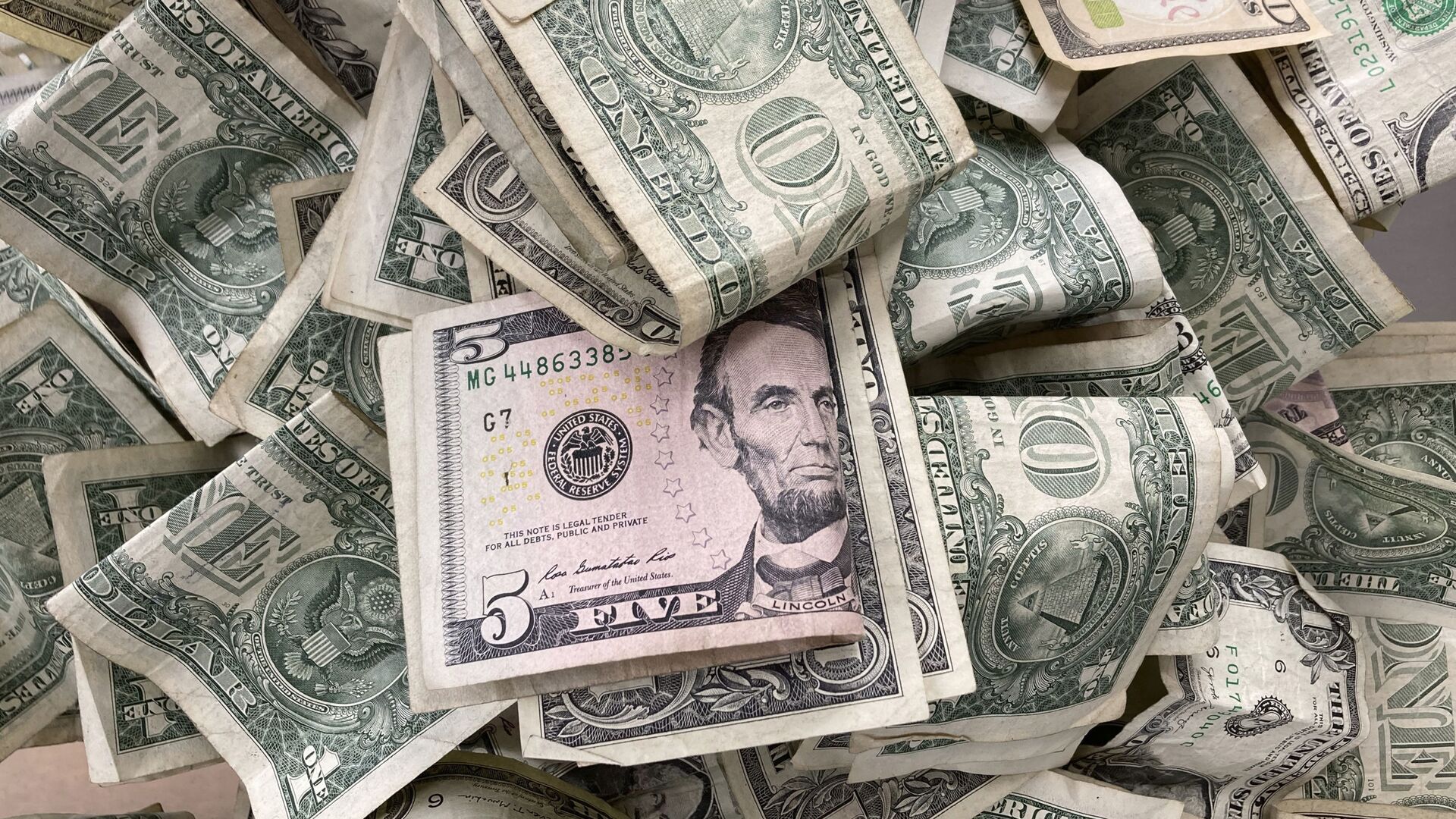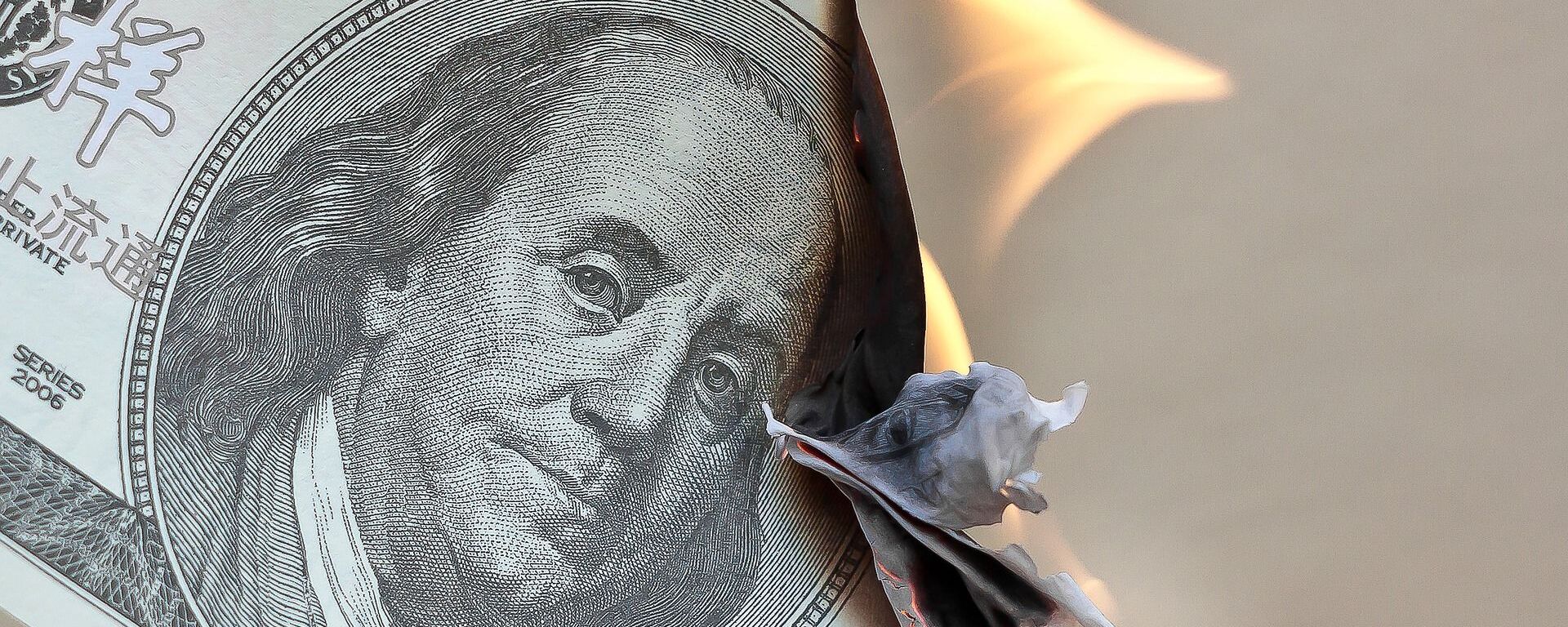https://sputnikglobe.com/20220121/imf-chief-us-rate-hikes-could-throw-cold-water-on-countries-with-high-dollar-debt-1092435065.html
IMF Chief: US Rate Hikes Could 'Throw Cold Water' on Countries With High Dollar Debt
IMF Chief: US Rate Hikes Could 'Throw Cold Water' on Countries With High Dollar Debt
Sputnik International
WASHINGTON (Sputnik) - Impending rate hikes by the US Federal Reserve could "throw cold water" on countries already experiencing weak recovery from the... 21.01.2022, Sputnik International
2022-01-21T18:27+0000
2022-01-21T18:27+0000
2022-01-21T18:27+0000
us
dollar
imf
debt
https://cdn1.img.sputnikglobe.com/img/07e5/06/16/1083204322_0:257:2731:1793_1920x0_80_0_0_9efb7be4650865086e92f72cbb53735f.jpg
The Fed slashed interest rates to almost zero after the outbreak of the COVID-19 crisis in March 2020, and has kept them there since to aid US recovery from the pandemic.But the central bank now says it may have to execute a series of rate hikes to counter runaway inflation, triggered by trillions of dollars of pandemic relief spending, higher wage payouts and supply chain disruptions.The US Consumer Price Index, an important barometer for inflation, grew by 7% in the year to December, expanding at its fastest rate since 1982. The Fed’s own target for inflation is a mere 2%.Georgieva said countries with high levels of dollar-denominated debt should try to restructure their payments as soon as possible.Georgieva said two-thirds of such countries were either in "debt distress" or in danger of falling into one, and that was double the number from 2015.
https://sputnikglobe.com/20210706/russias-national-welfare-fund-ditches-us-dollar-finance-ministry-says-1083320508.html
Sputnik International
feedback@sputniknews.com
+74956456601
MIA „Rosiya Segodnya“
2022
Sputnik International
feedback@sputniknews.com
+74956456601
MIA „Rosiya Segodnya“
News
en_EN
Sputnik International
feedback@sputniknews.com
+74956456601
MIA „Rosiya Segodnya“
Sputnik International
feedback@sputniknews.com
+74956456601
MIA „Rosiya Segodnya“
us, dollar, imf, debt
IMF Chief: US Rate Hikes Could 'Throw Cold Water' on Countries With High Dollar Debt
WASHINGTON (Sputnik) - Impending rate hikes by the US Federal Reserve could "throw cold water" on countries already experiencing weak recovery from the coronavirus pandemic, and the central bank needs to communicate its actions clearly to avoid more distress to them, the International Monetary Fund managing director said Friday.
"What the Fed does has implications for us and has implications for other countries, especially for those that have a high level of dollar-denominated debt", Kristalina Georgieva told a virtual event on The Davos Agenda. "And that could throw cold water on some countries already in a weak recovery. And this is why, what the Fed is doing needs to be clearly communicated to prevent surprises. It’s hugely important", she added.
The Fed slashed interest rates to almost zero after the outbreak of the COVID-19 crisis in March 2020, and has kept them there since to aid
US recovery from the pandemic.
But the central bank now says it may have to execute a series of rate hikes to counter runaway inflation, triggered by trillions of dollars of pandemic relief spending, higher wage payouts and supply chain disruptions.
The US Consumer Price Index, an important barometer for inflation, grew by 7% in the year to December, expanding at its fastest rate since 1982. The Fed’s own target for inflation is a mere 2%.
Georgieva said countries with high levels of
dollar-denominated debt should try to restructure their payments as soon as possible.
"Act now. If you can extend maturities, please do it. If you have currency mismatches, now is the moment to address them," she said.
Georgieva said two-thirds of such countries were either in "debt distress" or in danger of falling into one, and that was double the number from 2015.




